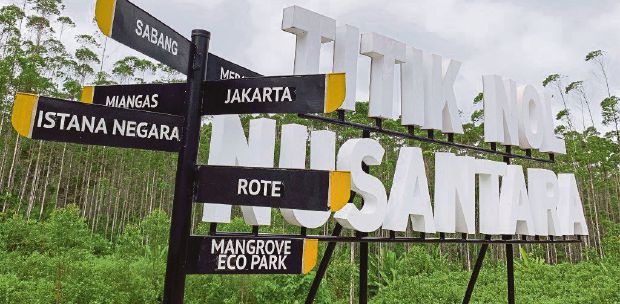KOTA KINABALU: Sabah may experience a slowdown in several sectors with the relocation of Indonesia's new administrative capital Nusantara to Kalimantan this year.
Sabah UITM economist Dr Jain Yassin said that the movement could have various impacts on Sabah's economy, benefiting cross-border businesses, particularly in Tawau.
However, Sabah Federal Secretary Datuk Makzhan Mahyuddin stated that nearly 50 per cent of industries, especially in plantation and construction, rely on foreign workers.
Jain said that with Indonesia offering better opportunities and higher wages for both foreigners and locals, the state might face further brain drain.
"The challenges for the Sabah government are to develop practical strategies to retain skilled workers, attract talent, and cultivate a skilled local workforce.
"Another critical consideration is the strain on existing infrastructure in Sabah due to an influx of people or goods between the regions or rapid population growth.
"This can lead to resource scarcity, especially in land, driving up land and housing prices."
Despite potential setbacks, Jain highlighted that fostering collaboration and partnerships with Kalimantan could create opportunities for mutually beneficial economic development initiatives and talent exchange programmes.
With expected increase in trade volumes due to improved cross-border connectivity, firms can benefit from economies of scale in transport.
"From a macro perspective, there will likely be growing demand for skilled workers across various sectors.
"This could lead to increased demand for vocational training programmes, technical certificates, and higher education degrees from local or international individuals to meet workforce demands.
"I also anticipate significant expansion in the services sector. Demand for services such as hospitality, retail, healthcare, education, and administrative support may develop faster than other sectors.
"The relocation could promote economic diversification of Sebatik Island, located at the border, currently over-reliant on fisheries. Job opportunities may emerge in sectors such as trade, manufacturing, services, and tourism, providing alternative sources of income for local communities."
However, Jain expressed concern that Sabah still grapples with unresolved basic infrastructure issues affecting its potential to obtain and expand opportunities to attract foreign investment.
"Initiatives to improve infrastructure connectivity and strengthen border and maritime security have been discussed extensively before.
"So, we should accelerate implementation and improvement and avoid politicised interventions that can hinder effective implementation and lead to delays."





